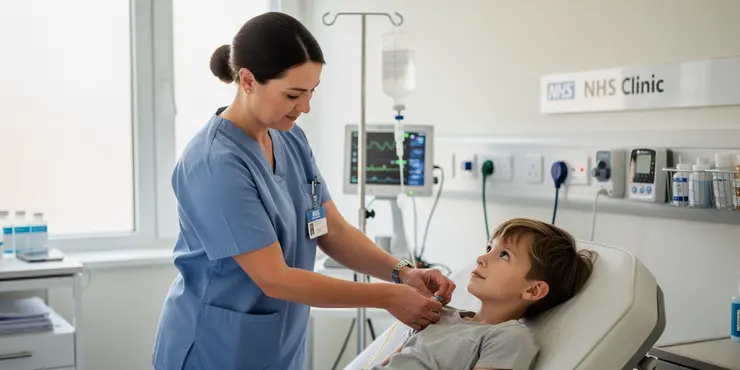
Find Help
More Items From Ergsy search
-
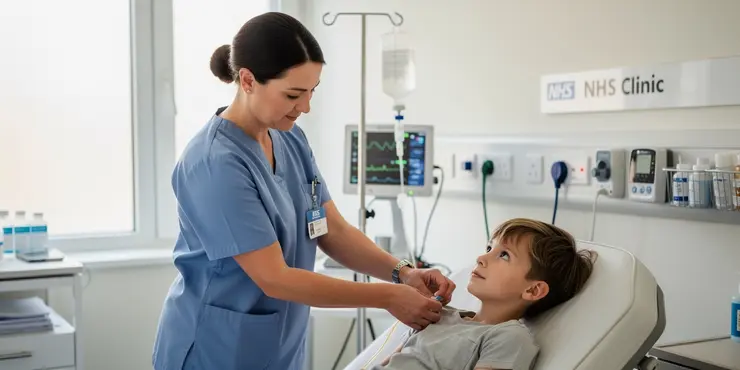
What is the treatment for bacterial meningitis?
Relevance: 100%
-
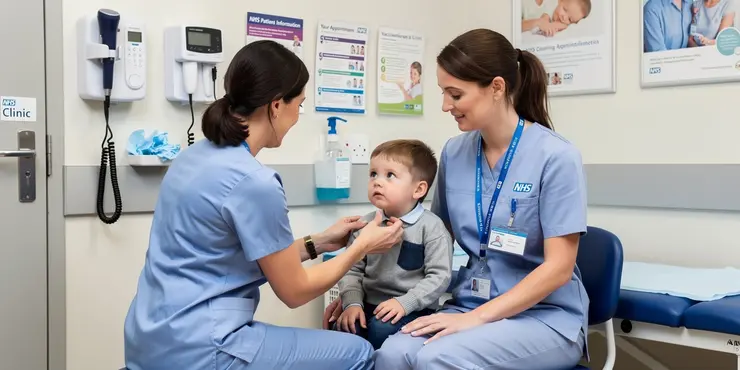
How serious is bacterial meningitis?
Relevance: 84%
-
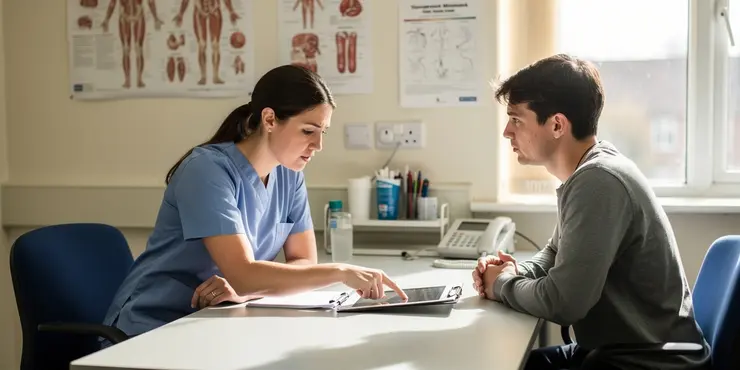
What causes bacterial meningitis?
Relevance: 84%
-

What is meningitis?
Relevance: 65%
-
Is meningitis contagious?
Relevance: 61%
-
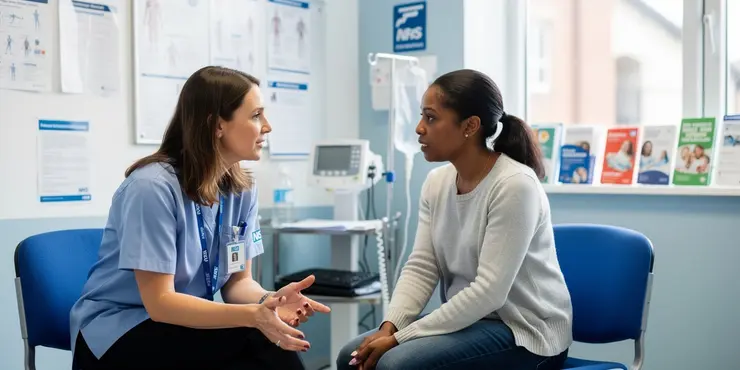
What are the main types of meningitis?
Relevance: 59%
-
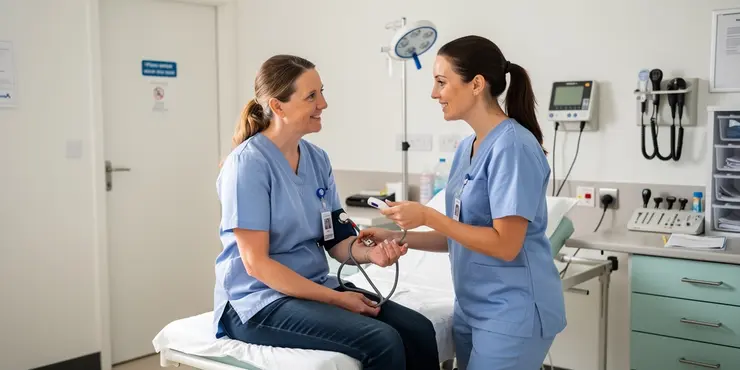
Why is meningitis a medical emergency?
Relevance: 59%
-
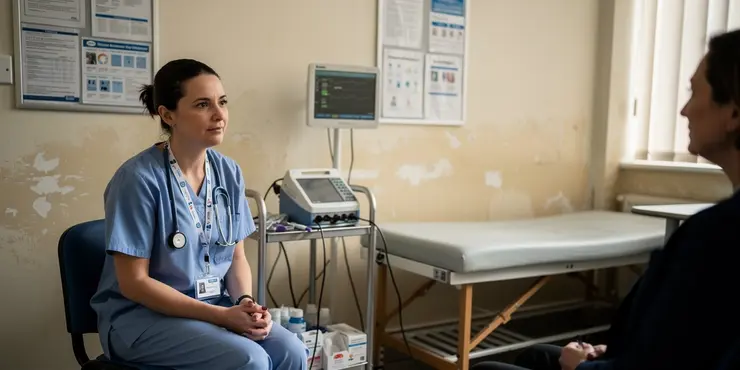
What is the prognosis for viral meningitis?
Relevance: 57%
-
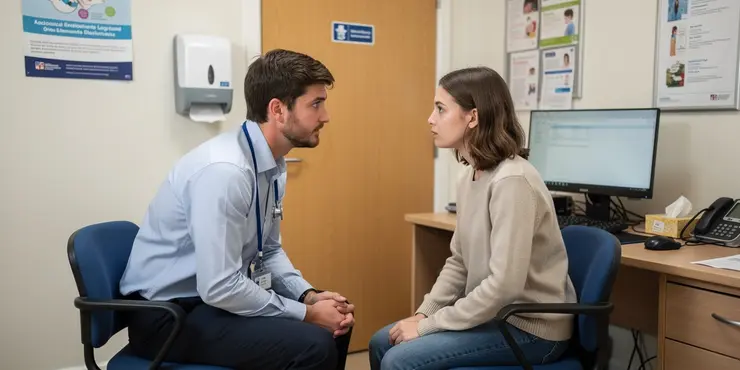
Can meningitis cause long-term complications?
Relevance: 56%
-
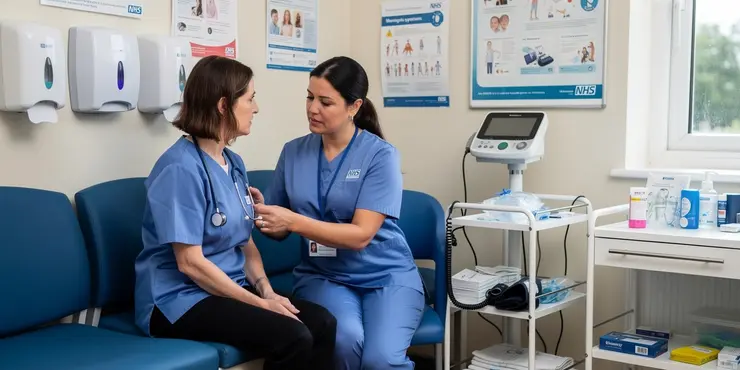
How is meningitis diagnosed?
Relevance: 55%
-
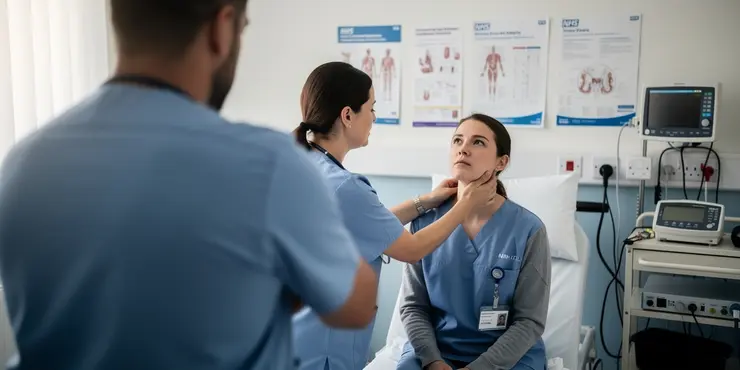
What are common symptoms of meningitis?
Relevance: 55%
-
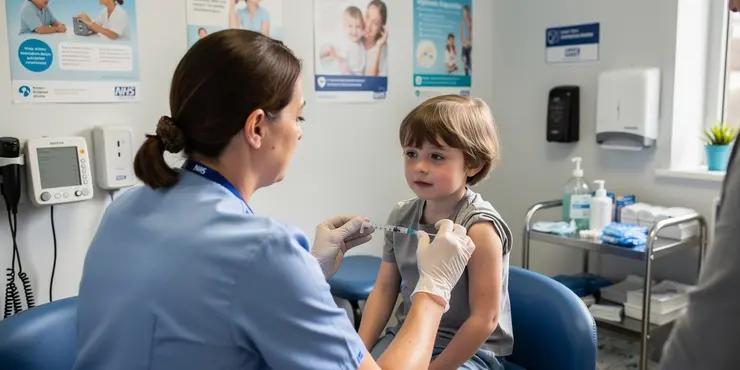
Are there vaccines for meningitis?
Relevance: 54%
-
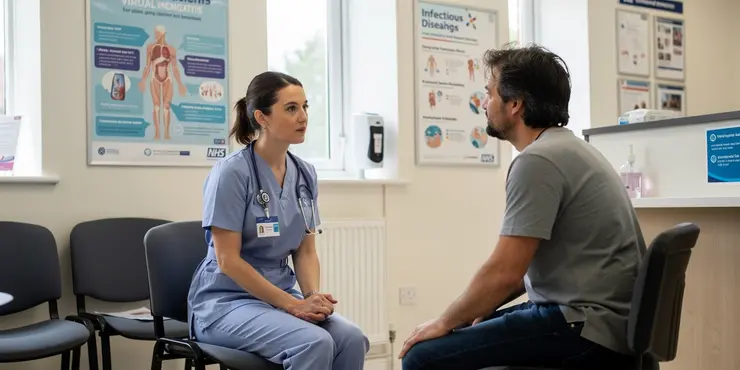
What causes viral meningitis?
Relevance: 54%
-
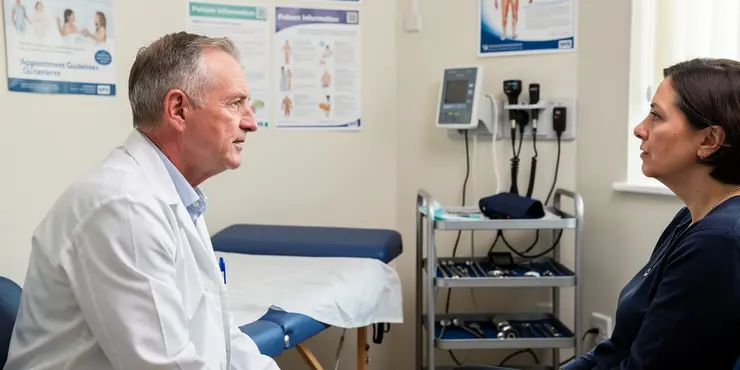
What is non-infectious meningitis?
Relevance: 54%
-
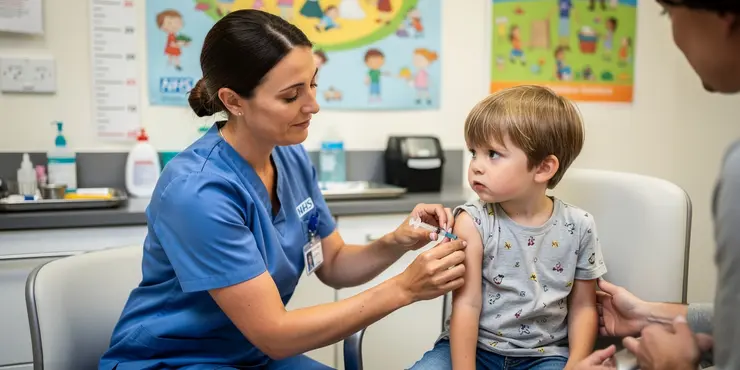
Who is at higher risk of contracting meningitis?
Relevance: 53%
-

What are the signs of meningitis in infants?
Relevance: 52%
-
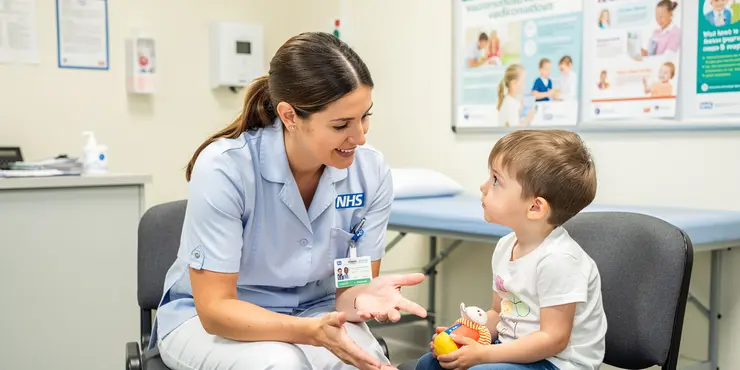
Can meningitis be prevented?
Relevance: 52%
-
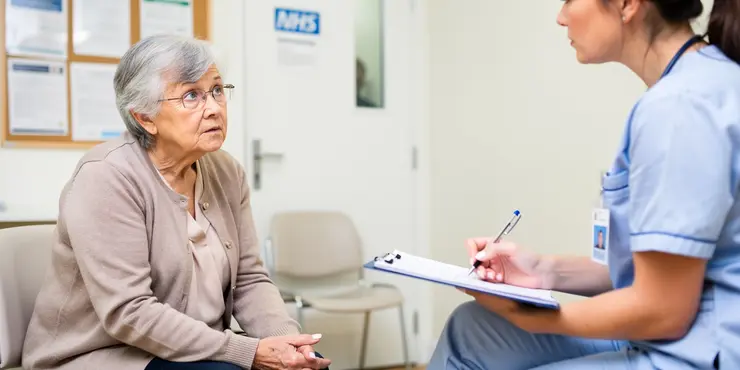
Is vaccination recommended for seniors against meningitis?
Relevance: 52%
-

Do people who have had meningitis in the past need to be vaccinated?
Relevance: 48%
-
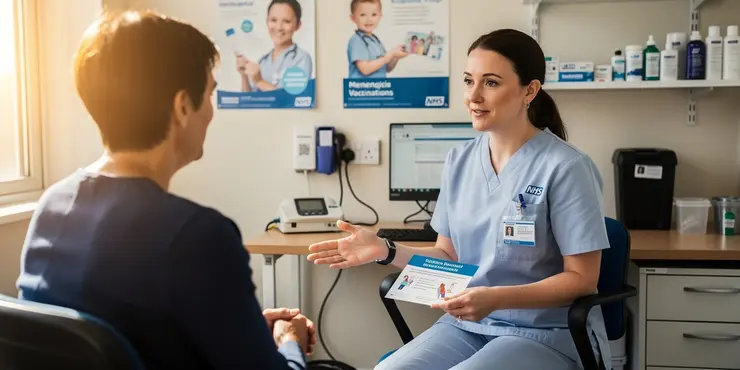
Are adults over 25 recommended for meningitis vaccination?
Relevance: 48%
-
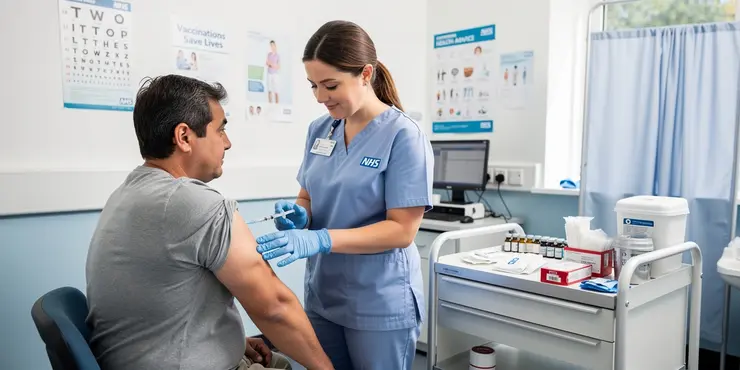
Should health care workers get the meningitis vaccine?
Relevance: 46%
-
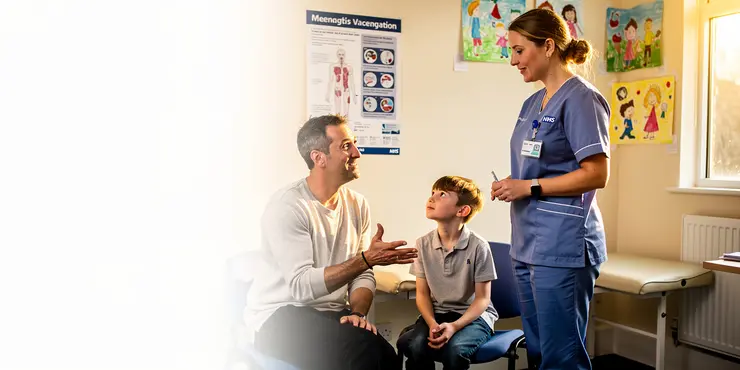
Who should get a meningitis vaccination?
Relevance: 46%
-
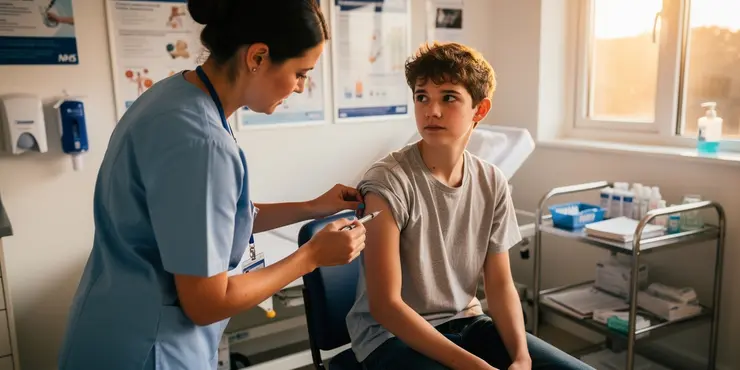
Does the CDC recommend meningitis vaccines for adolescents?
Relevance: 46%
-
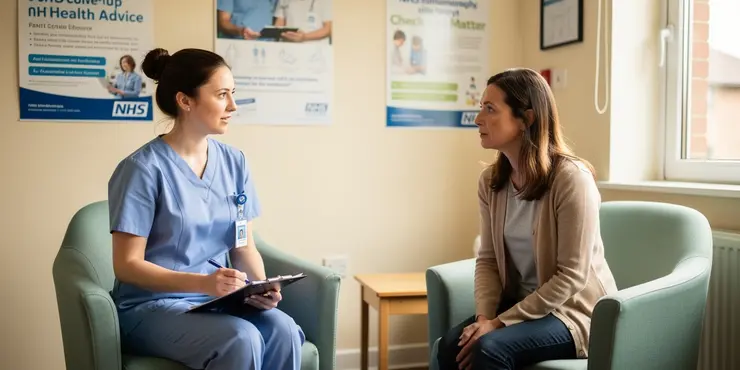
Bacterial vaginosis
Relevance: 46%
-
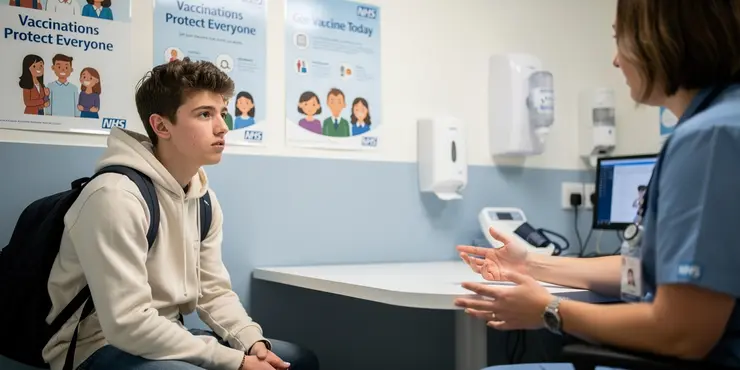
Should college students get the meningitis vaccine?
Relevance: 45%
-
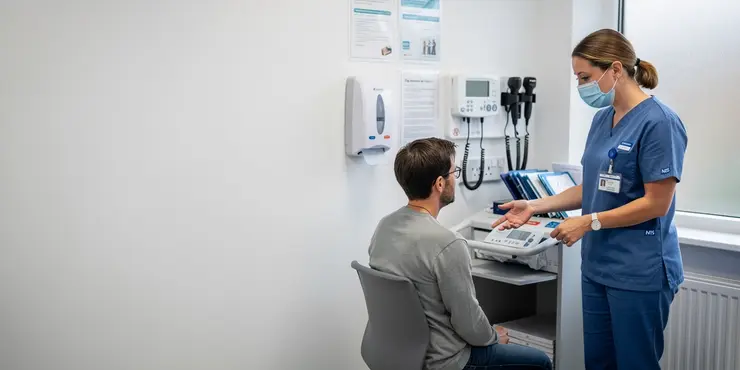
How is viral meningitis spread?
Relevance: 45%
-
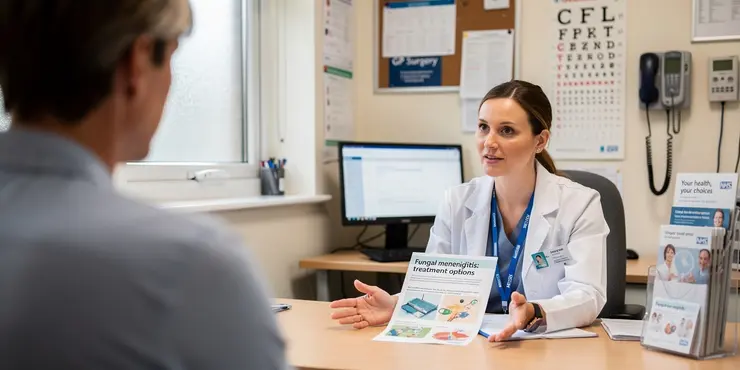
How is fungal meningitis treated?
Relevance: 44%
-
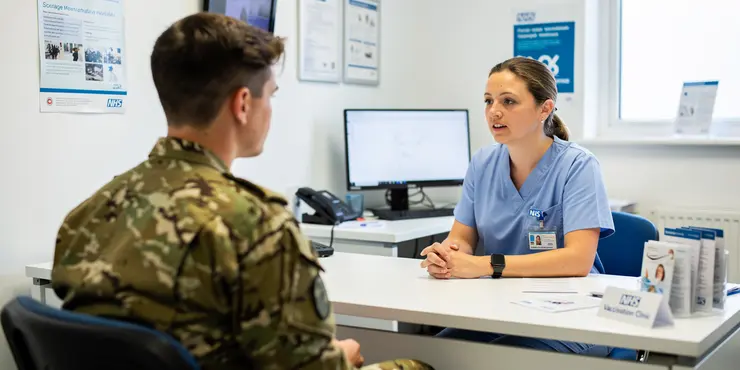
Is meningitis vaccination required for military recruits?
Relevance: 44%
-
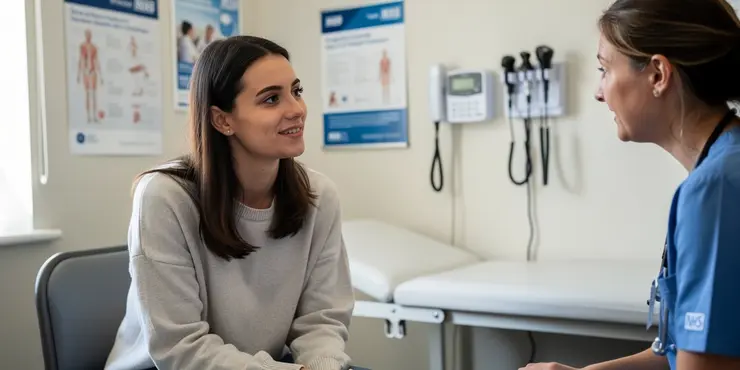
Are there any specific groups that should prioritize meningitis vaccination?
Relevance: 43%
-

Do international students need the meningitis vaccine?
Relevance: 39%
-
Can bacterial infections be transmitted through blood transfusion?
Relevance: 39%
-

Does refrigeration stop bacterial growth completely?
Relevance: 36%
-
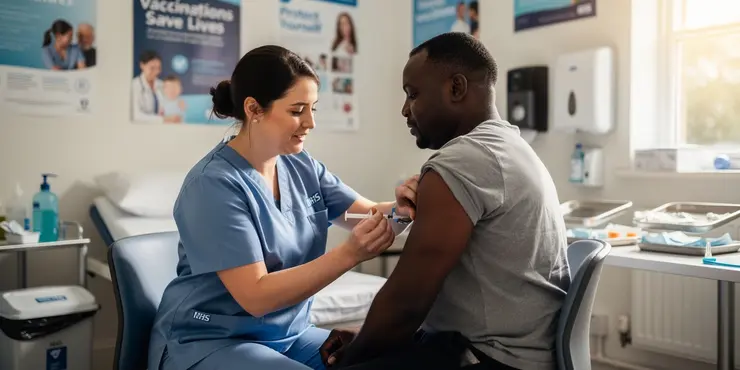
What are the guidelines for meningitis vaccination for HIV-infected individuals?
Relevance: 36%
-
What are the meningitis vaccination recommendations for travelers to Hajj or Umrah?
Relevance: 36%
-
Can mosquitoes transmit any bacterial diseases in the UK?
Relevance: 34%
-
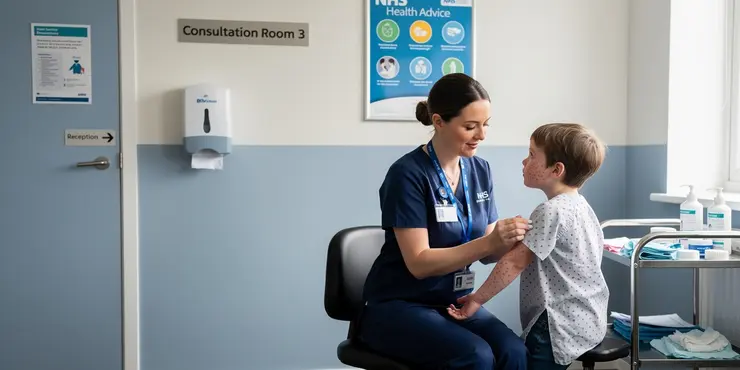
What is the treatment for chickenpox?
Relevance: 27%
-
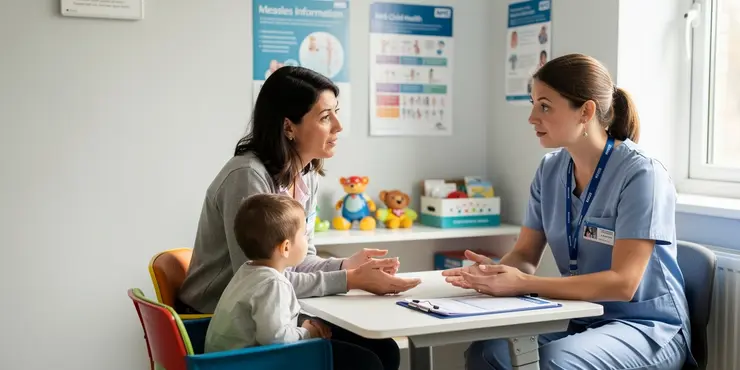
Is there a treatment for measles?
Relevance: 24%
-
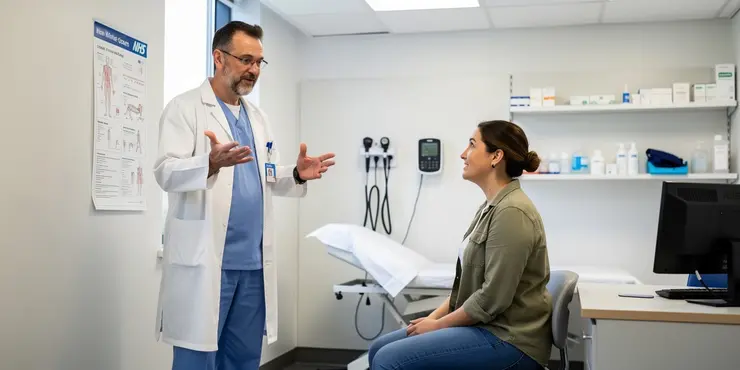
Are there treatments for West Nile Virus?
Relevance: 24%
-
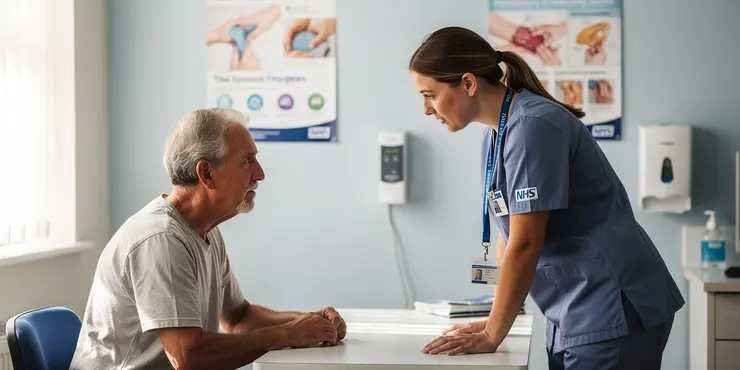
Can flesh-eating disease recur after treatment?
Relevance: 23%
-
Is there a treatment for measles?
Relevance: 23%
Treatment Overview for Bacterial Meningitis
Bacterial meningitis is a serious medical condition that requires prompt treatment. This infection affects the protective membranes covering the brain and spinal cord, known as the meninges. Rapid diagnosis and intervention are crucial to prevent severe complications or death. In the United Kingdom, where healthcare is primarily delivered through the National Health Service (NHS), there are standard protocols for managing bacterial meningitis effectively.
Initial Medical Assessment
Upon suspicion of bacterial meningitis, patients typically undergo several diagnostic tests. These may include a lumbar puncture to analyze cerebrospinal fluid (CSF), blood cultures, and imaging scans. Once bacterial meningitis is confirmed or highly suspected, immediate treatment is essential, often before the results of tests are fully available.
Antibiotic Therapy
Antibiotics are the cornerstone of treatment for bacterial meningitis. The choice of antibiotics may depend on the patient's age, the suspected bacteria, and the local guidelines within the UK. Common empirical treatments include intravenous administration of broad-spectrum antibiotics such as ceftriaxone, often combined with other antibiotics like vancomycin to cover resistant strains.
Once the specific bacteria causing the infection is identified through cultures, the antibiotic regimen may be adjusted to target the organism more effectively. For example, in cases of meningococcal meningitis, penicillin or a specific cephalosporin may be used.
Supportive Care
In addition to antibiotic therapy, supportive care is vital. Patients may require hospitalization to monitor neurological status and to manage symptoms like fever and headaches. Treatment can include analgesics for pain relief and antipyretics to control fever.
Management of fluid and electrolyte balance is also important, as dehydration or imbalances can occur. In some cases, corticosteroids like dexamethasone may be administered to reduce inflammation around the brain, especially in cases caused by certain bacteria such as Streptococcus pneumoniae.
Prevention and Vaccination
Vaccination plays a crucial role in the prevention of certain types of bacterial meningitis. In the UK, the NHS provides vaccines against Neisseria meningitidis, Haemophilus influenzae type b (Hib), and Streptococcus pneumoniae as part of the national immunisation programme. These vaccines have significantly reduced the incidence of bacterial meningitis.
Close contacts of individuals with meningococcal meningitis may receive prophylactic antibiotics to prevent spreading the infection. Health education on recognising symptoms early is also part of prevention strategies in the UK.
Conclusion
Treating bacterial meningitis effectively requires a combination of prompt antibiotic therapy, supportive care, and preventive measures. In the UK, adhering to NHS guidelines ensures that patients receive comprehensive medical attention, significantly improving outcomes and reducing the risks associated with this serious condition.
Treatment Overview for Bacterial Meningitis
Bacterial meningitis is a serious illness. It affects the coverings of the brain and spinal cord. These coverings are called meninges. It is important to find and treat this illness quickly to stop it from getting worse. In the UK, doctors follow rules from the NHS to treat bacterial meningitis well.
Initial Medical Assessment
If doctors think someone has bacterial meningitis, they do some tests. They might take a sample of fluid from the spine, which is called a lumbar puncture. They might also do blood tests and scans. If they think it is meningitis, they start treatment right away, even before all the test results are in.
Antibiotic Therapy
Antibiotics are very important for treating bacterial meningitis. The kind of antibiotics used can depend on the person's age and the type of bacteria. In the UK, doctors often start with strong antibiotics like ceftriaxone. They might add others like vancomycin to make sure they cover different bacteria types.
When tests show which bacteria caused the illness, doctors might change the antibiotics to better target that specific bacteria. For example, if the bacteria is meningococcal, they might use penicillin.
Supportive Care
Besides antibiotics, other treatments help the patient feel better. Patients may need to stay in the hospital. Doctors watch them closely and help with symptoms like fever and headaches. They might give medicine for pain and to bring down fever.
Doctors also make sure the patient stays hydrated and has the right balance of salts and fluids in their body. Sometimes, they give a medicine called dexamethasone to reduce swelling in the brain, especially if certain bacteria caused the infection.
Prevention and Vaccination
Vaccines help stop some types of bacterial meningitis. In the UK, people can get vaccines from the NHS to protect against certain bacteria. These vaccines have made bacterial meningitis less common.
People who have been close to someone with meningococcal meningitis might get antibiotics to stop them from getting sick. Teaching people to notice symptoms early is also important for prevention.
Conclusion
Treating bacterial meningitis well means using antibiotics quickly, giving other helpful care, and preventing the illness with vaccines. In the UK, following NHS rules helps doctors give the best care, which makes people healthier and safer from this serious illness.
Frequently Asked Questions
What is the primary treatment for bacterial meningitis?
The primary treatment for bacterial meningitis is the administration of antibiotics, usually intravenously, to quickly combat the infection.
Why are antibiotics administered intravenously for bacterial meningitis?
Intravenous antibiotics are used because they allow the medication to enter the bloodstream directly and quickly reach the brain to effectively fight the infection.
What types of antibiotics are commonly used for bacterial meningitis?
Common antibiotics for bacterial meningitis include penicillin, ampicillin, and ceftriaxone, among others.
How soon should treatment for bacterial meningitis begin?
Treatment for bacterial meningitis should begin as soon as possible, ideally within a few hours after diagnosis or suspicion of the condition.
Can bacterial meningitis be treated with oral antibiotics?
Oral antibiotics are generally not effective for treating bacterial meningitis due to their inability to adequately penetrate the blood-brain barrier.
Is hospitalization required for bacterial meningitis treatment?
Yes, hospitalization is typically required for the treatment of bacterial meningitis, as it involves intensive care and intravenous antibiotics.
Are corticosteroids used in the treatment of bacterial meningitis?
Corticosteroids, such as dexamethasone, may be used to reduce inflammation and complications in certain types of bacterial meningitis, such as those caused by Haemophilus influenzae.
How long does treatment for bacterial meningitis typically last?
The duration of antibiotic treatment varies depending on the specific bacteria and the patient's response, but it typically lasts from 7 to 21 days.
What supportive care is needed in bacterial meningitis treatment?
Supportive care for bacterial meningitis includes fluids, pain management, antipyretics for fever, and sometimes oxygen therapy.
Can bacterial meningitis lead to complications if not treated promptly?
Yes, if not treated promptly, bacterial meningitis can lead to severe complications including brain damage, hearing loss, or even death.
What role does the lumbar puncture play in bacterial meningitis treatment?
A lumbar puncture is used to diagnose bacterial meningitis by obtaining cerebrospinal fluid (CSF) for analysis, which guides the choice of antibiotics.
Is there a vaccine to prevent bacterial meningitis?
Yes, vaccines are available to prevent some types of bacterial meningitis including vaccines for Neisseria meningitidis, Streptococcus pneumoniae, and Haemophilus influenzae type b (Hib).
Can bacterial meningitis recur after treatment?
Recurrence is rare if the initial infection is adequately treated, but underlying conditions that predispose an individual to infection should be evaluated and managed.
How do doctors determine which antibiotic to use for bacterial meningitis?
Doctors determine the appropriate antibiotic based on the type of bacteria identified from the CSF and the patient's age, immune status, and local antibiotic resistance patterns.
Are antiviral medications useful in treating bacterial meningitis?
No, antiviral medications are not effective against bacterial meningitis; they are used for viral infections, not bacterial ones.
Can bacterial meningitis be treated at home?
Bacterial meningitis requires hospital treatment due to the need for intravenous antibiotics and close monitoring for potential complications.
Is pain management necessary in bacterial meningitis treatment?
Yes, pain management is an important part of supportive care in treating bacterial meningitis to alleviate symptoms like headaches and muscle pain.
What is the prognosis for bacterial meningitis with timely treatment?
The prognosis with timely treatment is generally good, though it depends on factors like the patient's age, overall health, and the specific bacteria causing the infection.
How does early treatment affect the outcome of bacterial meningitis?
Early treatment significantly improves outcomes, reducing the risk of severe complications or death associated with bacterial meningitis.
What are the signs that indicate the need for immediate medical attention for bacterial meningitis?
Signs include sudden high fever, severe headache, stiff neck, nausea, vomiting, sensitivity to light, confusion, and a purplish skin rash.
How do doctors treat bacterial meningitis?
Doctors usually use medicine called antibiotics to treat bacterial meningitis. Antibiotics help to kill the germs that make you sick.
If you or someone you know is feeling unwell, speak to a doctor. They can help you get better.
Using tools like listening to a recording of this information can be helpful for understanding.
The main way to treat bacterial meningitis is to give medicine called antibiotics. These medicines are usually given through a needle, called an "IV." This helps fight the infection quickly.
Why do doctors give antibiotics through a drip for bacterial meningitis?
Bacterial meningitis is a very serious illness. It is an infection in the brain. When someone is very sick, doctors give medicine quickly.
Antibiotics are medicines that help fight infections. For meningitis, doctors give these medicines through a drip. This means the medicine goes straight into the blood. It works faster this way.
Using a drip helps the person get better sooner. If you have questions, always ask a doctor. They can help you understand.
Helpful Tip: If you know someone with meningitis, be sure to tell a doctor or nurse if you see any changes in how they feel.
Doctors use medicine that goes into a vein called intravenous antibiotics. This way, the medicine gets into the blood fast and goes straight to the brain to fight the infection.
What antibiotics are used to treat bacterial meningitis?
Bacterial meningitis is an illness caused by germs. Doctors use special medicine called antibiotics to treat it. Here are some antibiotics they might use:
- Penicillin: This medicine kills many germs.
- Ceftriaxone: This is a strong medicine that fights germs.
- Vancomycin: Doctors use this when other medicines don't work.
- Ampicillin: This helps fight certain types of bacteria.
Using a picture dictionary might help if you find some words hard to understand.
Doctors use medicines called antibiotics to treat bacterial meningitis. Some common antibiotics are penicillin, ampicillin, and ceftriaxone.
When should treatment for bacterial meningitis start?
It's important to start treatment for bacterial meningitis very quickly. Doctors should begin treatment a few hours after they know or think someone has it.
Can medicine you swallow help cure bacterial meningitis?
Oral medicine that you swallow usually does not work for treating bacterial meningitis. This is because it cannot get into the brain well enough to fight the germs.
Do you need to stay in the hospital to treat bacterial meningitis?
If you have bacterial meningitis, you usually need to stay in the hospital. This is because doctors and nurses can help you get better and keep you safe.
Ask for help from family or friends to understand what the doctor says. You can also use pictures or simple drawings to make things clearer.
Yes, if someone has bacterial meningitis, they usually need to go to the hospital. They need special care and medicine given through a drip to help them get better.
Do doctors use corticosteroids to help treat bacterial meningitis?
Corticosteroids like dexamethasone can help make swelling go down. They are sometimes used to treat certain kinds of bacterial meningitis. This includes meningitis caused by a germ called Haemophilus influenzae.
How long does treatment for bacterial meningitis usually take?
Bacterial meningitis is a serious illness. People need medicine to get better.
Treatment often lasts for about 7 to 21 days.
Doctors will say how long you need the medicine.
It is important to listen to the doctor and take the medicine every day.
If you need help to understand, ask someone you trust to explain it to you.
Using pictures or videos can also help you learn more about the treatment.
How long you take antibiotics can be different. It depends on the germs making you sick and how you are getting better. Usually, you take them for about 7 to 21 days.
What care do you need when treating bacterial meningitis?
If someone has bacterial meningitis, they might need help to feel better.
This help can include:
- Drinking lots of water
- Taking medicine for pain
- Taking medicine to bring down a fever
- Sometimes using oxygen if it is hard to breathe
What happens if you do not treat bacterial meningitis quickly?
Yes, if you don’t get help quickly, an illness called bacterial meningitis can cause big problems. It can hurt your brain, make it hard to hear, or be very dangerous.
What is a lumbar puncture in treating bacterial meningitis?
A lumbar puncture is a procedure where a doctor takes a sample of fluid from the lower back.
This fluid is checked to see if someone has bacterial meningitis.
Bacterial meningitis is an infection of the brain and spine.
The lumbar puncture helps doctors know the right medicine to use for treatment.
For more help understanding, you could:
- Ask a doctor questions about the lumbar puncture.
- Use pictures to see how it works.
- Watch videos that explain bacterial meningitis and its treatment.
A lumbar puncture is a test. It helps doctors find out if someone has an illness called bacterial meningitis.
During the test, doctors take a small amount of a liquid from your back. This liquid is called cerebrospinal fluid (CSF).
Doctors look at this liquid to decide the best medicine, called antibiotics, to give you.
Supportive tools like pictures or videos can help understand this better. You can also ask a trusted adult to explain.
Is there a shot to stop bacterial meningitis?
A shot can help stop you from getting sick with bacterial meningitis. Talk to your doctor about getting this shot.
Here are some tips that can help:
- Ask someone to go with you to the doctor to help understand.
- Bring a list of questions you have.
- Use pictures or drawings to learn more.
Yes, there are shots that can stop some kinds of germs that cause meningitis. These shots can help protect you from these germs: Neisseria meningitidis, Streptococcus pneumoniae, and Haemophilus influenzae type b (Hib).
Can you get bacterial meningitis again after treatment?
It is not common for the infection to come back if it is treated well the first time. But if you have other health problems that make it easy to get infections, those should be checked and taken care of.
How do doctors choose the right medicine for bacterial meningitis?
Doctors start by finding out what type of bacteria is causing the sickness. They do some tests to check this. Once they know the bacteria, they can pick the best medicine, called an antibiotic, to help make the person better.
Families can help by using tools like picture cards or apps to understand more about the treatment. Talking with a nurse can also make things clearer.
Doctors choose the right medicine to fight the germs (bacteria) found in the CSF. They look at the person's age, how strong their immune system is, and if the germs can resist the medicines in their area.
Can antiviral medicines help with bacterial meningitis?
No, antiviral medicines do not work for bacterial meningitis. Antiviral medicines help with viruses, not bacteria.
Can you treat bacterial meningitis at home?
No, you can't treat bacterial meningitis at home. It is very serious. You need to go to the hospital right away.
It's important to get help from doctors and nurses. They will give you medicine and good care.
If you feel sick with a bad headache, stiff neck, or fever, tell an adult or doctor quickly.
Tools that might help you:
- Ask someone to go with you to the hospital.
- Use simple words to tell the doctor how you feel.
- Write down any questions you have.
When someone has bacterial meningitis, they need to go to the hospital. This is because they need strong medicine called antibiotics, which is given through a drip. Doctors and nurses also need to watch them carefully in case anything goes wrong.
Do people with bacterial meningitis need help with pain?
Pain management is about helping to stop pain.
This is important when treating bacterial meningitis.
Pain management can help with bad headaches and muscle pain.
If you are in pain, let someone know. They can help you feel better.
What happens if you get treated for bacterial meningitis quickly?
The chances of getting better are usually good if you get help quickly. How well someone gets better can depend on things like how old they are, how healthy they are, and the type of germ making them sick.
How does getting treatment early change what happens with bacterial meningitis?
Getting help and medicine quickly can make a big difference. It can help people get better faster and stop serious problems. If you think someone might have bacterial meningitis, see a doctor right away.
Here are some tips to help understand:
- Look at pictures about how medicine helps.
- Ask a helper or a doctor if you have questions.
- Listen to videos that explain bacterial meningitis in simple words.
Getting help early can make you feel much better. It can lower the chances of serious problems or dying from a bad infection called bacterial meningitis.
When should you go to the doctor if you have bacterial meningitis?
Bacterial meningitis can make you very sick. It is important to see a doctor quickly. Here are some signs:
- You have a very bad headache.
- Your neck feels stiff and you can't move it.
- Bright lights hurt your eyes.
- You feel really tired or confused.
- You have a high fever.
- Your body has a rash that doesn't go away when you press it.
If you or someone you know has these signs, tell an adult. Go to the doctor or call for help right away.
You can use picture cards or stories to help you understand. Also, asking a grown-up or using apps on a tablet can be helpful.
If you are feeling sick, here are some things to look out for:
- A very high fever
- A bad headache
- A stiff neck that is hard to move
- Feeling like you need to throw up
- Throwing up
- Bright lights hurt your eyes
- Feeling mixed up or confused
- Purple spots on your skin
If you have these, ask someone to take you to a doctor. You can also use tools like drawing or using a thermometer to help show what you are feeling.
Useful Links
This website offers general information and is not a substitute for professional advice.
Always seek guidance from qualified professionals.
If you have any medical concerns or need urgent help, contact a healthcare professional or emergency services immediately.
Some of this content was generated with AI assistance. We’ve done our best to keep it accurate, helpful, and human-friendly.
- Ergsy carfully checks the information in the videos we provide here.
- Videos shown by Youtube after a video has completed, have NOT been reviewed by ERGSY.
- To view, click the arrow in centre of video.
- Most of the videos you find here will have subtitles and/or closed captions available.
- You may need to turn these on, and choose your preferred language.
- Go to the video you'd like to watch.
- If closed captions (CC) are available, settings will be visible on the bottom right of the video player.
- To turn on Captions, click settings .
- To turn off Captions, click settings again.
More Items From Ergsy search
-

What is the treatment for bacterial meningitis?
Relevance: 100%
-

How serious is bacterial meningitis?
Relevance: 84%
-

What causes bacterial meningitis?
Relevance: 84%
-

What is meningitis?
Relevance: 65%
-
Is meningitis contagious?
Relevance: 61%
-

What are the main types of meningitis?
Relevance: 59%
-

Why is meningitis a medical emergency?
Relevance: 59%
-

What is the prognosis for viral meningitis?
Relevance: 57%
-

Can meningitis cause long-term complications?
Relevance: 56%
-

How is meningitis diagnosed?
Relevance: 55%
-

What are common symptoms of meningitis?
Relevance: 55%
-

Are there vaccines for meningitis?
Relevance: 54%
-

What causes viral meningitis?
Relevance: 54%
-

What is non-infectious meningitis?
Relevance: 54%
-

Who is at higher risk of contracting meningitis?
Relevance: 53%
-

What are the signs of meningitis in infants?
Relevance: 52%
-

Can meningitis be prevented?
Relevance: 52%
-

Is vaccination recommended for seniors against meningitis?
Relevance: 52%
-

Do people who have had meningitis in the past need to be vaccinated?
Relevance: 48%
-

Are adults over 25 recommended for meningitis vaccination?
Relevance: 48%
-

Should health care workers get the meningitis vaccine?
Relevance: 46%
-

Who should get a meningitis vaccination?
Relevance: 46%
-

Does the CDC recommend meningitis vaccines for adolescents?
Relevance: 46%
-

Bacterial vaginosis
Relevance: 46%
-

Should college students get the meningitis vaccine?
Relevance: 45%
-

How is viral meningitis spread?
Relevance: 45%
-

How is fungal meningitis treated?
Relevance: 44%
-

Is meningitis vaccination required for military recruits?
Relevance: 44%
-

Are there any specific groups that should prioritize meningitis vaccination?
Relevance: 43%
-

Do international students need the meningitis vaccine?
Relevance: 39%
-
Can bacterial infections be transmitted through blood transfusion?
Relevance: 39%
-

Does refrigeration stop bacterial growth completely?
Relevance: 36%
-

What are the guidelines for meningitis vaccination for HIV-infected individuals?
Relevance: 36%
-
What are the meningitis vaccination recommendations for travelers to Hajj or Umrah?
Relevance: 36%
-
Can mosquitoes transmit any bacterial diseases in the UK?
Relevance: 34%
-

What is the treatment for chickenpox?
Relevance: 27%
-

Is there a treatment for measles?
Relevance: 24%
-

Are there treatments for West Nile Virus?
Relevance: 24%
-

Can flesh-eating disease recur after treatment?
Relevance: 23%
-
Is there a treatment for measles?
Relevance: 23%


